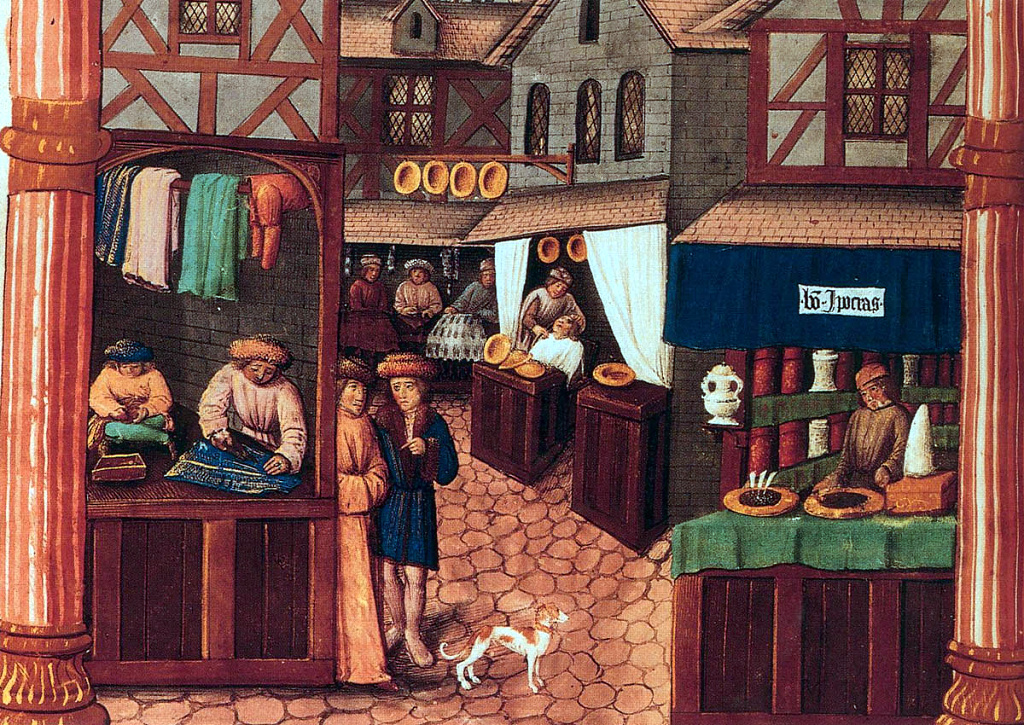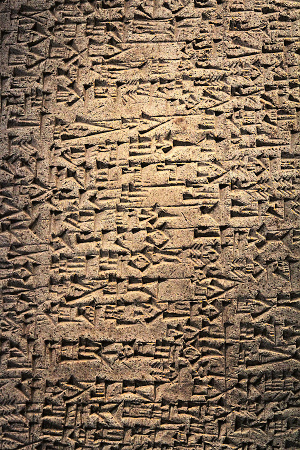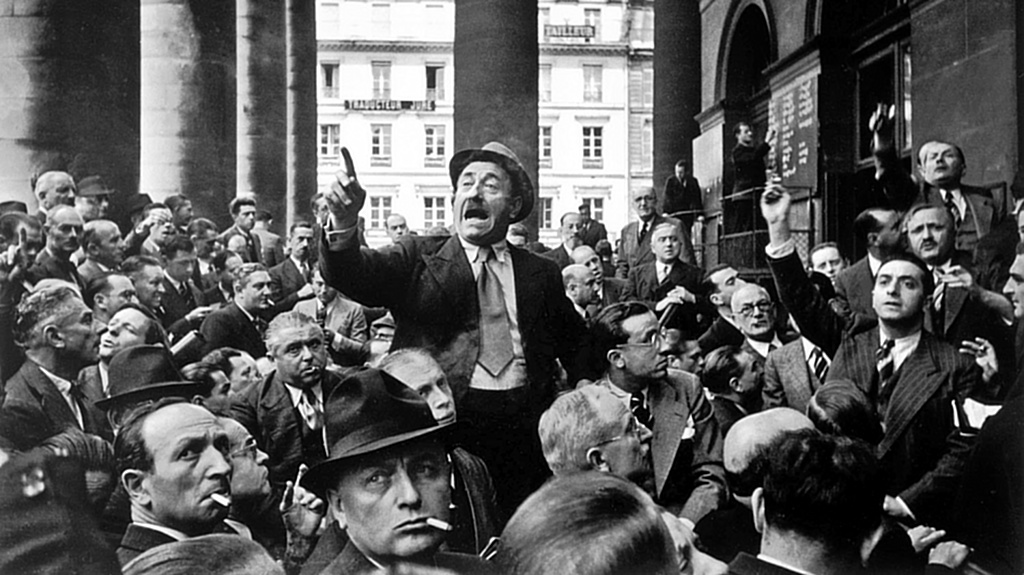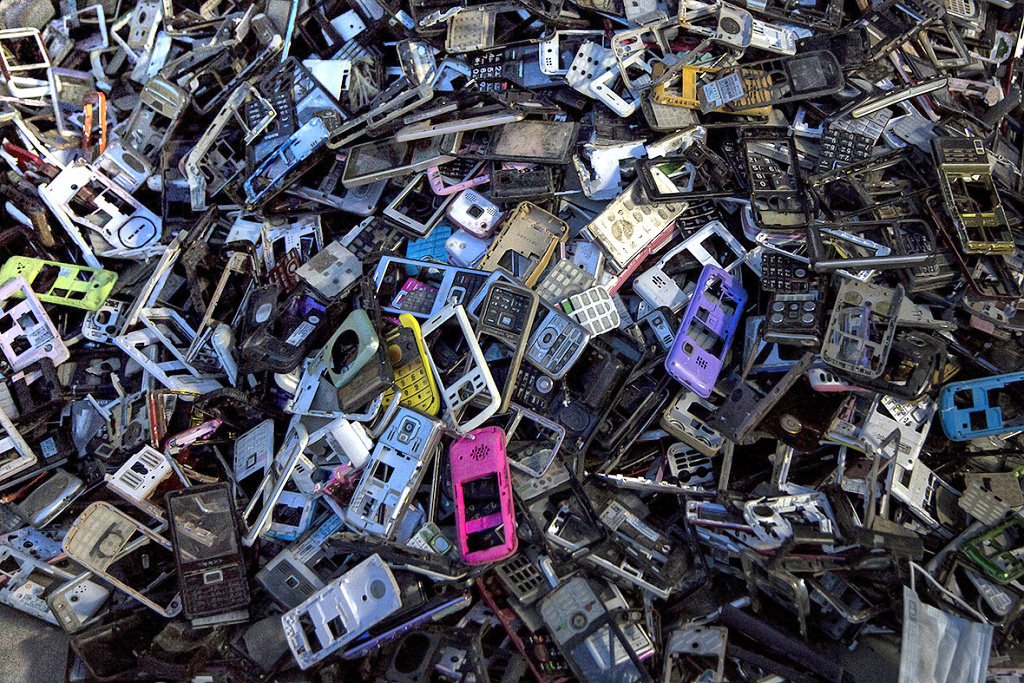| By: Paul S. Cilwa | Viewed: 4/24/2024 Posted: 12/28/2006 |
Page Views: 4881 | |
| Topics: #Science #Conspiracy #HealthCare #Politics | |||
| I explain Open Source and how it relates to cavemen. | |||

First, a little background.
Originally, as we know from studies of contemporary indigenous peoples, mankind lived in smallish groups in which each person contributed to the welfare of all. We know from fossilized burials that our cousins, Homo Neanderthalensis, as well as our own ancestors of 50,000 years ago and more, cared for sick and injured members of their tribes. (Some fossils show evidence of serious, but mended, injuries.) In other words, cavemen had access to free health care.
In indigenous groups, some people provide specialized services to the others in their group. For example, one person may make particularly good baskets, while another may be a more successful hunter. The basket maker may strike up a deal with the hunter, so that the basket maker can concentrate on doing what he does best, in exchange for a surplus of meat from the hunter, who is now freed of the time required to make her own baskets. The result is that indigenous people spend about 26 hours a week each on all their household and food-gathering activities, and are able to spend the remaining awake time talking with friends, creating art for the fun of it, or playing with their children.

(This is the life the mainstream media has spent a century and billions of dollars convincing us we would hate living.)
This most basic form of commerce is usually called barter. It is unique in that both parties to the deal are always satisfied with the terms of it—neither feels cheated, because neither one is forced into it, either by circumstances or custom. The basket maker could hunt. The hunter could make baskets. They make a deal simply because it is mutually advantageous for them to do so.
When cities were introduced and human groups became too large for everyone to know everyone else personally, a new dynamic came along: The merchant. Merchants bought goods from providers and sold them at a profit to people who, presumably, didn't personally have access to the providers. As city life became more complex, merchants became necessary. Basket makers, who now lived much too far from hunting grounds to have any other options, found themselves forced to make baskets for a living. Merchants were able to strike deals in which the basket maker was underpaid for her product. (Economics 101 tells us an underpaid basket maker will simply develop a new product; but it fails to take inertia into account—it takes time to develop a new product, and a special creative skill that many basket makers may not possess.) The merchant's customers were also usually dissatisfied with the price they now had to pay for baskets—but, with a job of their own to do, who had time to weave his own? And so a culture developed that, in point of fact, benefited no one but the merchants.

Worse, since the basket makers now had to spend many extra hours a week making baskets just to keep food on the table, they no longer had time to teach their children how to hunt—or even to play with them. Their children could only learn how to make baskets, thus guaranteeing this unbalanced system would self-perpetuate. In effect, the mercantile system stole a third of the providers' and customers' lives, using them to enrich the merchants.

Of course, the consumers and providers developed a resentment towards the merchants who they could see were sucking away so much of their lives; and that resentment manifested as a demand that, if a customer was going to overpay for a basket, it had damned well be a good basket. When a purchased product turned out to be inferior or defective, the customer often become so angry he might well kill the merchant. Thus, some of the oldest laws in history include elements of consumer protection. Hammurabi's Code, for example, includes specifics such as executing the son of a builder whose shoddy building has collapsed, killing the son of the owner. (If the owner himself was killed, the builder was executed. If the owner's daughter was killed, the builder's daughter was executed.)
But merchants had money, and in time they ganged up to protect their wealth—and created the corporation. This "legal fiction" serves one purpose only: To protect the owners of the corporation from the responsibility they have to provide safe and whole products to their consumers. If worst comes to worst, the corporation simply dissolves and the owners form a new one—retaining all, or most, of their wealth, but none of the consequences of past injustices.
It shouldn't surprise anyone that a mechanism created for a selfish reason, should go out of control. For corporations, which are independent of the beings that make them up, can outlive their original owners. That means a mechanism is needed to pass on ownership. For many centuries, that mechanism was the family. But sometimes owners die without children. And so stocks came into being.

Originally stocks were intended to be long-term investments. A person became a stockholder, and thus a partial owner of the corporation, by buying one or more shares of stock. As the corporation became successful, the value of its shares increased; but the stockholder was content to receive a dividend, a portion—proportionate to the number of shares of stock the person owned—of that year's profits. Enough shares made it possible for the stockholder to retire, living entirely off the dividends. When the shareholder died, his or her holdings were passed onto his or her children.
However, this had the result of moving wealth away from the merchants. Their solution? Sell stock—and the stock market was born. Now people were encouraged to sell stocks they'd owned for too short a time to ever receive a dividend—sometimes days after buying them. (In today's computer age, stocks are often sold seconds after they've been purchased.) The stock itself came to be considered wealth although it had no intrinsic value. (That's why, in the stock market crash of 1929, the market was said to have "lost" millions of dollars. Where did they go? Nowhere, into the same non-existent fantasyland from which they had come.) Stocks often sold for high prices even when the corporations they represented made no profit at all. Corporations now existed for the purpose of creating stock; any product was incidental. The corporate owners only invested enough effort into the corporation to sell their own stock in the company at a high price and, thus, become rich.
The vast majority of wealth in today's world over over 7 billion people, has thus, by the present day, become concentrated in the bank accounts of a few hundred. The richest 2% of humanity own half the world's wealth. Of the remaining 98%, most have inadequate health care, insufficient food, unsafe living conditions, and no time to play with their children—because they spend all their waking hours trying to stay alive. Why? Because survival is built into our genome—a fact known and exploited by the wealthy to stay that way.

But, after all this time, there are hints the pendulum may swing the other way. And it's thanks to, of all things, the Internet. The crack in the corporate shell has started in the software sector, but it's a start: It shows that people, here and there, are beginning to look for alternatives to greed.
Traditionally, the creation and marketing of computer software has followed the model provided by Bell Telephone and General Electric. We can call it the Benevolent Monopoly. In this approach, a corporation is formed by a few wealthy investors and one or two non-wealthy people who invest a good idea. A campus is formed around the idea people to help bring those ideas to reality. Once the idea has become a marketable product, that product is sold—usually at a very low price, so that people will purchase it and grow accustomed to its being a part of their lives. One factor of this product, however, is that it is consumable—it wears out or loses value with time, so that it must be replaced. And each time it's replaced, its cost to the consumer rises—gradually—so that, for example, a product that cost $20 when it was a novelty costs $150 or $200 when custom and resulting new ways of doing things make the product indispensable.
That's what happened with electricity. Cheap when it was a novelty, the price rose as people found new ways of using it and threw out their oil lamps and ice boxes. That's what happened with telephones. Inexpensive when people were accustomed to waiting patiently for written replies; expensive now that we can no longer bear to be out of touch long enough for a trip to the 7-Eleven. That's what happened with Microsoft Windows—cheap when few people had home computers; expensive now that we've all thrown out our typewriters and dictionaries.
And let's not even talk about cell phones, which somehow "need" replacing ever year or so.

It's not that the quality of life isn't improved with electricity and telephones and computers. It's that there's no real justification for those things to be priced as high as they are, other than that people will pay that much. The "benevolence" in these monopolies is a delusion and a snare.
So, secure in a world in which consumers were safely entrapped by the "need" for television, Coca Cola and the Internet, imagine the entrepreneurs'' surprise when an irresistible competition crawled out of one of its own inventions. So far, the concept has only been applied to software design, but it could spread to other fields. It's called Open Source.
Open Source relies on the fact that computers can copy computer software and transmit it to virtually any other computer in the world, at virtually no cost. This, of course, makes software piracy practical, so that the Benevolent Monopolies of software (Microsoft, et al) must devote considerable resources to making it impractical. The money Microsoft spends to make Windows difficult to copy is passed on to the consumer, of course—not to the pirates, who by definition don't pay for copies.
Open Source takes a completely different approach. It omits completely the group of wealthy investors; all that's needed is a person with an idea. The Internet, used as a forum, publicizes that idea and requests people who are interested and have the skill and the time, to join in a public project to turn the idea into a reality. In time, the product, created by volunteers, is ready; it is tested by volunteers and made available to anyone who wants it—for free, over the Internet. What's more, the product can not be co-opted and sold because the source code (the magic instructions which make the software work) has also been made freely available and is in the possession of hundreds or thousands of people at any given time.

Bill Gates of Microsoft famously criticized Open Source in 2001, when Open Source Linux turned out to be a serious competitor for Microsoft Windows. But while the mass media (owned by the same investors who own the Benevolent Software Monopolies) praised Gates for standing up for American Free Enterprise (which is free only if you have wealthy investors at your side), Open Source continued on its way, creating usable applications big and small—most famously Linux and Open Office, a replacement for Microsoft Office.
Now, while Open Source works well with software—it can be defensibly predicted that someday, all software will be Open Source simply because the Benevolent Monopoly system can't compete with it, either in features or in price—it doesn't lend itself to the generation of electricity, or the manufacture of cars, or most of the many material goods we've convinced ourselves are necessary for a life worth living. That's because the investment each contributor makes to Linux or Open Office is minimal; the contributors all have "day jobs."
And the Benevolent Monopolies won't go down without a fight. Bill Gates in 1991 said:
"If people had understood how patents would be granted when most of today's ideas were invented and had taken out patents, the industry would be at a complete standstill today…A future start-up with no patents of its own will be forced to pay whatever price the giants choose to impose."
That's because patents protect ideas of how to do something. But Gates assumed that no one would ever come up with new ways. He also assumed that anyone trying to do something a new way, would be a corporation.
It's worth noting that the core of Microsoft's success, MS-DOS, was not invented by Bill Gates—he bought it from the guys who did invent it, who wound up not profiting from their own invention (when Gates bought it from them, he knew, as they did not, that IBM was about to release the Personal Computer, as soon as they found an operating system for it).
Open Source is not a corporation, and no court in the world can force a computer program, once written and distributed to potentially millions of users, back into the Internet.
No wonder the merchants are running scared!






